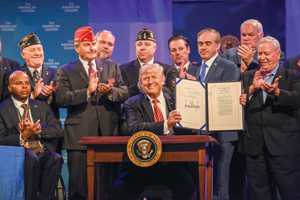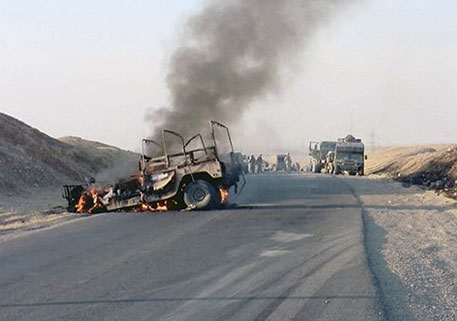
On August 23, President Trump signed into law a long-awaited piece of legislation designed to create a more timely and accurate system for processing veterans’ appeals for disability claims.
Veterans have faced unnecessary and unacceptable delays within the current VA disability appeals system, on average taking between three to five years—sometimes longer—to complete. The Veterans Appeals Improvement and Modernization Act of 2017 will overhaul the system by creating three paths for veterans to appeal an unfavorable decision: taking their appeal directly to the Board of Veterans’ Appeals; requesting a higher-level VA adjudicator to decide their case; or file a supplemental claim with new evidence.
“We have long advocated for appeals reform because we believe this law will help minimize the frustration and undue burdens that veterans and their families experience when caught in a lengthy appeals process,” said Washington Headquarters Executive Director Garry Augustine. “This critical legislation will ensure that the new appeals system provides veterans with multiple options to challenge unfavorable decisions, ultimately leading to quicker and more favorable outcomes while also protecting veterans’ due process rights.”
While the claims backlog has come down significantly over the past five years, the number of pending appeals has risen dramatically—to over 450,000.
Since March of 2016, DAV has worked alongside Congress, VA, the Board of Veterans Appeals and many other stakeholders to develop and refine this framework.
“This legislation is a testament to how vital collaborative partnerships between VA, Congress and veterans organizations are in crafting reform measures that meet the needs of all parties involved—most especially the needs of disabled veterans,” said Augustine.






